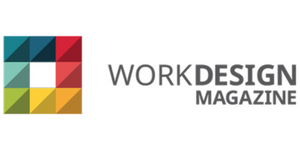- The three key areas where AI is revolutionizing the future of work are Customer Engagement, Market Adaptation and Platform Evolution.
- To truly thrive in this new era, we need to understand (at a fundamental level) how AI is reshaping business dynamics and design strategies that not only keep pace but stay ahead of these changes.
- AI is the most crucial technology propelling us toward a future of business abundance, and companies embracing this shift are leading the charge.
This article was written by JLL’s Ram Srinivasan for Work Design Magazine.
What if AI could transform your business overnight, making it 100 times more efficient and competitive? What if it could help you stay ahead of self-educating customers, rapidly evolving markets and your own changing platform?
Before we dive into how AI will disrupt today’s business landscape, it’s worth noting how challenging the current environment is:
Three Stark Realities of Today’s Business World
- Customers are self-educating — 77% don’t talk to a salesperson without research, now increasingly AI-powered.
- Markets are moving at an exponential rate — ChatGPT had 1 million users in 5 days, 100 million in 3 months, virtually every business must now consider AI-integration.
- To keep pace, companies’ own platforms must evolve significantly faster than before.
But all of this is presenting an opportunity, unleashing what you might call “business abundance.”
This will happen as AI converges with massive datasets in everything from customer behavior to market trends, enabling business strategies that are more agile, more intelligent, and more targeted.
The three key areas where AI is revolutionizing the future of work are Customer Engagement, Market Adaptation and Platform Evolution.
“In the future, we envision GenAI helping us reimagine entire business workflows [and this technology] has the potential to augment virtually every job.” – JPMorgan Chief Jamie Dimon
Let’s dive in…
1. Customer Engagement: The Self-Educating Consumer
In the age of AI, customers are becoming more informed and empowered than ever before. Let’s look at some stats:
- B2B buyers are now consulting a wide range of sources before making a purchase decision. According to Google’s ZMOT research, consumer shoppers consult an average of 10.4 sources, and for high-involvement purchases like cars, this number can rise to 18.2 sources.
- A study by DemandGen notes that 77% of B2B buyers did not talk with a salesperson until after they had performed independent research.
- B2B buyers favor web searches and vendor websites for their research. Additionally, social media is a key tool for 50% of respondents in the DemandGen Report survey.
- The advent of AI-powered search tools like SearchGPT, Perplexity, and others is significantly impacting how customers access and process information, effectively making them “smarter” or more informed.
This is also true of your employees — will top talent work for a firm that has the latest AI tools or one that does not? AI is changing how customers (and employees) consume information and make decisions.
This is also true of your employees — will top talent work for a firm that has the latest AI tools or one that does not?
2. Market Adaptation: Keeping Pace with Rapid Change
With markets moving at breakneck speeds, companies need AI-powered tools to stay ahead. Let’s look at the context:
- Global connectivity has led to faster exchange of ideas and information, potentially accelerating innovation, and adoption of new technologies.
- The exponential nature of technological progress means that advancements in one area can lead to breakthroughs in others, compounding the rate of change.
- 5G networks deliver speeds up to 100X than 4G LTE networks, 6G is 20X faster than 5G, which could influence future market dynamics further.
- The adoption rate of new technologies by consumers has increased. For example, it took 30 years for electricity to be adopted by 10% of US consumers, while more recent technologies have seen much faster adoption rates.
- There’s an increasing need for businesses to reduce their strategic planning horizons from years to months and to integrate continuous measurement of business value and outcomes.
In a world where markets shift overnight, AI isn’t just an advantage — it’s a necessity for survival.
3. Platform Evolution: Transforming From Within
As internal platforms evolve faster than ever. AI isn’t just changing what we do; it’s fundamentally altering how we operate at every level:
- AI is enabling more sophisticated automation of routine tasks and processes within internal platforms.
- AI algorithms can analyze user behavior and preferences to customize internal platform interfaces and workflows for individual employees.
- AI-powered analytics and recommendation systems are being integrated into internal platforms to provide employees with data-driven insights and suggestions, enhancing decision-making across all levels of the organization.
- Advanced organizations are already upgrading their platforms. JPMorgan Chase recently rolled out an in-house developed Generative AI chatbot to staff, likening it to having a research analyst at your desk.
Why This Matters
Traditional, slow-to-adapt businesses will be disrupted by leaders and technologies coming from outside their normal ranks, in this case from today’s AI innovators.
If you’re like me, and desire to maximize your business’s potential and longevity, then you’re likely to realize that traditional methods can only get you so far… perhaps to steady growth, but unlikely to achieve exponential success.
To truly thrive in this new era, we need to understand (at a fundamental level) how AI is reshaping business dynamics and design strategies that not only keep pace but stay ahead of these changes.
Consider What Moderna Did
Stéphane Bancel, CEO of Moderna, said: “If we had to do it the old biopharmaceutical ways, we might need a hundred thousand people today.” Moderna has about 5,000 people and competes with large pharmaceutical companies that have 80,000 to 150,000 employees. How do they do it? One point of leverage is AI.
Moderna partnered with OpenAI to implement ChatGPT Enterprise across their company, aiming to accelerate the development of mRNA medicines. They created an internal AI chatbot tool, mChat, which was adopted by more than 80% of employees, who created 750 custom GPTs for various tasks.
These applications range from analyzing clinical data and optimizing vaccine doses to summarizing contracts, explaining policies, and assisting with investor communications.
Interestingly, Moderna’s legal team boasts 100% adoption of ChatGPT Enterprise.
Moderna believes this AI integration allows a small team to perform like a much larger one, potentially saving costs while maintaining innovation.
The company’s culture shift towards embracing new technologies is seen as crucial for achieving their goal of bringing 15 new products to market in the next 5 years. Ultimately, Moderna views this AI implementation as a key factor in improving efficiency and accuracy in their processes, which they expect will translate to better outcomes for patients.
Last year, JLL launched a proprietary large language model called JLL GPT to its workforce of 110,000 employees. Developed by JLL Technologies, the AI model is specifically designed for the commercial real estate industry and aims to provide secure, industry-specific insights.
The decision to build an in-house solution was driven by the need to empower the workforce with a model trained on specialized real estate data. Within the first 48 hours of deployment, more than 11,000 employees used the model.
Since then, there have been substantive updates with several proprietary layers and knowledge bases added to the model. JLL plans to offer this technology to clients in the future and has more than 50 additional generative AI innovations in development or beta testing.
JLL has also run a number of internal hackathons to create and nurture ideas to sharpen business focus — a “test and learn” mindset is key to unlocking the power of advanced tech in this new era as JLL’s recent Future of Work research notes.
What happens when JLL’s 110,000 people are 110,000 AI-powered and exponential?
For me, AI is the most crucial technology propelling us toward a future of business abundance, and companies embracing this shift are leading the charge.



 Dr. Gleb Tsipursky – The Office Whisperer
Dr. Gleb Tsipursky – The Office Whisperer Nirit Cohen – WorkFutures
Nirit Cohen – WorkFutures Angela Howard – Culture Expert
Angela Howard – Culture Expert Drew Jones – Design & Innovation
Drew Jones – Design & Innovation Jonathan Price – CRE & Flex Expert
Jonathan Price – CRE & Flex Expert













